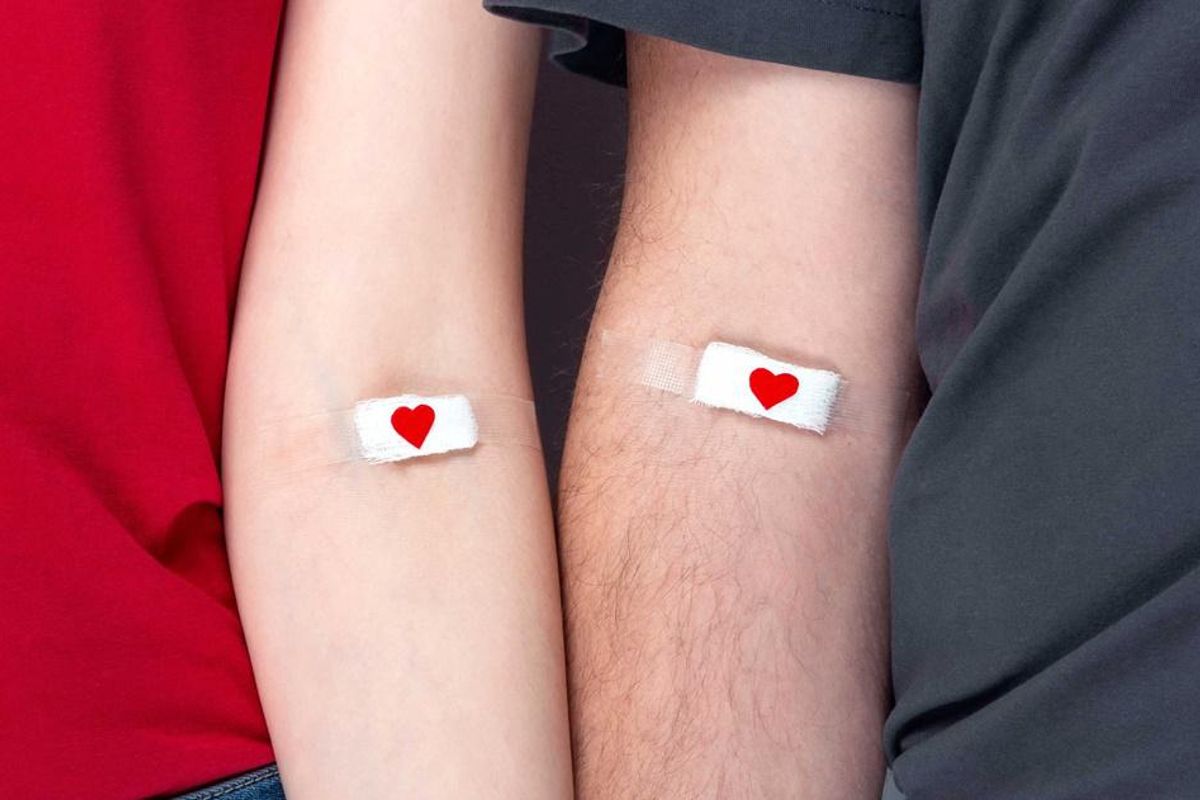France to allow gay, bisexual men to donate blood ending ‘an inequality that’s no longer justified’

France takes a bold step toward blood donor equality.
In the early-to-mid '80s, countries across the globe enacted strict bans on blood donations from men who have sex with men (MSM). The bans were a reaction to the HIV/AIDS epidemic that affected MSM at much higher rates than those who are exclusively heterosexual.
But over the past 40 years, tests that can detect HIV in blood have become much more sophisticated. A 2015 surveillance report by Canadian Blood Services found that the risk of HIV transfusion-transmitted infection was just one in 21.4 million donations.
The tests have become so sophisticated they can detect the presence of HIV in blood two to six weeks after infection.
France began to lift restrictions on blood donations in 2019 for MSM by allowing them to do so if they remained sexually abstinent for at least four months before donating.
Now, the country has taken things a step further by eliminating all bans on blood donation based on sexual orientation.
The change in rules was announced by public health chief Jérôme Salomon, who said there would be "no more reference to sexual orientation" in questionnaires prior to donating blood.
[#DonDeSang] @Sante_Gouv a annonc\u00e9 l\u2019\u00e9volution des conditions d\u2019acc\u00e8s au don du sang et la lev\u00e9e de l\u2019ajournement pour les hommes ayant des relations sexuelles avec des hommes \u00e0 partir du 16 mars 2022. https://www.santepubliquefrance.fr/les-actualites/2022/nouvelles-conditions-d-acces-au-don-du-sang-le-role-de-la-surveillance\u00a0\u2026pic.twitter.com/t1FuOBpbyd— Sant\u00e9publiqueFrance (@Sant\u00e9publiqueFrance) 1641980038
“Starting on March 16, 2022 all French people, whatever their sexual orientation, will be able to donate blood,” Health Minister Olivier Véra said. “We are ending an inequality that is no longer justified,” he added.
The move was met with cheers from gay rights advocates.
“Imposing a four-month period of abstinence on homosexuals wishing to donate blood is totally absurd and has always been seen as a form of discrimination, especially when we know that donations are in short supply,” Matthieu Gatipon-Bachette, the spokesperson for the French LGBTQ rights group Inter-LGBT told the newspaper Le Parisien.
“Obviously there must be a health safety framework to be respected, but this must not be based on the sexual orientation of the donor,” he added.
France’s new law means there are at least 18 countries in the world that have no blood donor restrictions for MSM including Argentina, Italy, Russia, South Africa, Spain, Hungary and the United Kingdom.

The United States is now a step behind France when it comes to allowing MSM to donate blood. In 2015, the U.S. began to allow MSM to donate blood if they were abstinent for one year.
Studies show that after MSM were allowed to donate with a 12-month period of abstinence, the increase in HIV infections through blood donations was insignificant.
Last year, on April 2, the FDA announced it had gone a step further by shortening the period of gay-sex abstinence from 12 months to just three.
"To help address this critical need and increase the number of donations, the FDA is announcing today that based on recently completed studies and epidemiologic data, we have concluded that the current policies regarding the eligibility of certain donors can be modified without compromising the safety of the blood supply," the notice said.
The new ruling also reduced the ban on donations from women who have had sex with MSM to three months as well.
The slow change in MSM blood donor rules throughout the world makes sense across the board. It will greatly increase the pool of eligible donors while reducing the stigma surrounding men who have sex with men. There are few things more harmful to a community than promoting the idea that their blood is tainted or dangerous.





 Rihanna Nails GIF
Rihanna Nails GIF Dexters Laboratory What A Fine Day For Science GIF
Dexters Laboratory What A Fine Day For Science GIF The bread doesn't lie. Facebook/Jaralee Metcalf
The bread doesn't lie. Facebook/Jaralee Metcalf A Gen X text convo with Gen ZPhoto credit: Annie Reneau
A Gen X text convo with Gen ZPhoto credit: Annie Reneau Oh Yeah Mic Drop GIF by Taylor Bisciotti
Oh Yeah Mic Drop GIF by Taylor Bisciotti